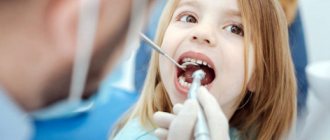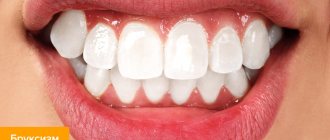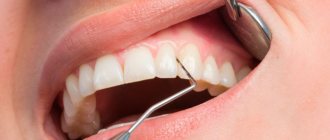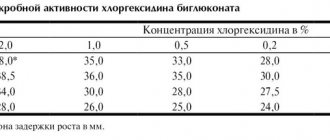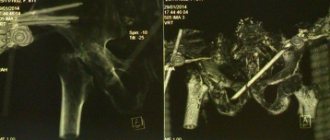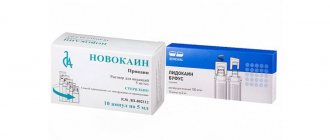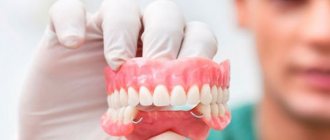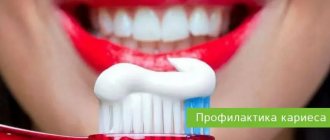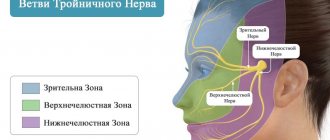Most people have experienced acute toothache at least once in their lives. And, of course, they don’t want their child to face such a test. What measures will help keep your baby's teeth healthy? Do baby teeth need to be treated? How to prepare a child for a visit to the clinic? Is it necessary to treat teeth by force? Comprehensive answers - in interviews with leading experts.
Select an expert (click on the picture):
Pediatric dentist - who is he?
In modern medicine, pediatric dentistry is a separate area, including the prevention and treatment of not only erupted baby teeth, but also their rudiments. The specialist also deals with diseases and abnormalities of the oral cavity. A pediatric dentist is a specialist who has received a specialty in “Pediatric Dentistry.” A qualified doctor working with children must have not only professional knowledge and skills, but also know the peculiarities of the psychology of children of different ages. A good dentist has the ability to find an approach to a child, inspire trust and conduct an appointment so that the child does not suffer psychological trauma.
About choosing a clinic
Before deciding where to go and with what amount, you need to have an idea of what a modern children’s dental clinic should be like, where there are all the conditions for guaranteed high-quality dental repairs:
- Qualified dentists of various profiles.
- Use of advanced technologies.
- Availability of modern filling materials.
- Providing comprehensive dental services.
- Reasonable prices.
Service offerings are the number of features provided. Patients prefer that all procedures, including additional examination, be performed at one institution. Demand for services must exceed supply or be at least at the same level. The price of services should be competitive and not intimidate patients.
What is the difference between pediatric and adult dentistry?
In terms of its anatomical structure, the developing dental system in children differs from the formed teeth of an adult. This explains the peculiarities of the course of dental diseases and methods of their treatment.
There are also a number of features in dental treatment itself.
- The need for the doctor to work quickly. Small children are physically unable to sit still for a long time, much less keep their mouth open. The duration of dental treatment for a child 3–5 years old is 10–15 minutes. If a lengthy procedure is required, treatment may be carried out in several doses or with sedation.
- Use of drugs and materials. Dental treatment for children may involve the use of medications, restorative materials, and anesthesia. Before starting treatment, the dentist must always make sure that there are no risks to the baby’s health.
- Choice of treatment method. One of the main reasons for a child’s fear of dental treatment is the drill. Modern clinics at the early stage of caries can use gentle methods of therapy that do not require enamel preparation. If it is still necessary to use a drill, the doctor must correctly explain to the child the features of the device, the necessity and safety of manipulations.
The difference between pediatric and adult dentistry lies not only in the treatment process and approach to the patient, but also in the arrangement of the clinic. A children's clinic should accommodate the child, so the interior often uses such maneuvers as colorful design, playrooms, children's pictures, and the presence of a TV for watching cartoons. The dentist’s office also follows a “children’s” design; there may be special toys and other elements. A small patient should feel comfortable and pleasant in the dentistry.
Relevance. The development of multiple organ lesions in undifferentiated connective tissue dysplasia leads to the development of secondary immunodeficiency, which triggers a disruption of oral homeostasis and activates periodontal microflora. Periodontal pathogens lead to the production of anti-inflammatory cytokines, which trigger the mechanisms of destruction of periodontal tissue. The goal is to establish the relationship between undifferentiated connective tissue dysplasia in children and their predisposition to inflammatory-destructive damage to periodontal tissue.
Materials and methods. Patients of the endocrinology department of the Children's Clinical Hospital of VSMU named after N. N. Burdenko aged 15 to 17 years were examined. All examined children had a common diagnosis of “undifferentiated connective tissue dysplasia.” The control group consisted of 15 children with intact periodontium. When assessing the periodontal status of children, the plaque index in the gingival region was assessed according to Silness-Loe (Loe H., Silness J., 1962), bleeding was assessed using the Mullemann index (Mhhlemann HR, Son S., 1971) [19], intensity and the prevalence of the inflammatory reaction based on cytological changes in periodontal tissues according to Page - Schroeder (Page RC, Schroeder ME, 1976). The concentration of pro-inflammatory cytokines - interleukin IL-1β, interferon gamma IFN-γ and anti-inflammatory beta tissue growth factor TGF-β1 in the oral fluid was determined by the enzyme immunoassay method using eBioscince kits, and the anti-inflammatory cytokine interleukin receptor antagonist IL-1 (IL-1ra) with using the Invitrogen kit in strict accordance with the instructions on the Multiskan FC plate reader (Thermo Scientific).
Results. When assessing the periodontal status of children, no obvious inflammatory clinical manifestations were revealed that could cause concern and complaints of bleeding gums. Thus, the plaque index in the gingival region according to Silness-Loe was 1.70 ± 0.07 (control group 1.10 ± 0.03), the Mullemann bleeding index in children with undifferentiated connective tissue dysplasia was 2.10 ± 0.05 (control group 0). When verifying the results obtained on the content of cytokines in the oral fluid in patients with undifferentiated connective tissue dysplasia, a tendency towards an increase in pro-inflammatory cytokines and a decrease in anti-inflammatory cytokines was observed, in contrast to the control group.
Conclusions . Thus, the qualitative composition of pro-inflammatory cytokines - interleukin IL-1β, interferon gamma IFN-γ and anti-inflammatory cytokines beta tissue growth factor TGF-β1, interleukin receptor antagonist IL-1 (IL-1ra) in oral fluid in combination with clinical methods diagnostics in periodontal practice is able to predictively predict the susceptibility of people with undifferentiated connective tissue dysplasia to inflammatory and destructive lesions of periodontal tissue. The main task of clinical examination in children with undifferentiated connective tissue dysplasia is to carry out complex treatment and preventive measures to preserve the functions of the dental system. And since a separate children's periodontal service in the Russian Federation is not identified in the register of medical specialties, children with periodontal diseases are observed in the main dental dispensary groups, although the need to maintain a periodontal passport indicating the genetic predisposition to inflammatory damage to periodontal tissues is already clear.
Anesthesia in pediatric dentistry
Dental treatment in children is carried out using anesthesia. If the procedure does not involve serious intervention and severe pain, then topical anesthesia in the form of a spray is used. If there are indications for more serious manipulations, the dentist can administer injection anesthesia, but first numb the injection site. In this way, it is possible to relieve the child of unpleasant sensations as much as possible. In pediatric dentistry, for complex dental treatment or when a child has certain diseases, the method of dental treatment “in a dream” (sedation) is also used. This is a safe method of anesthesia that allows you to protect your little patient from stress and the risk of injury during the doctor’s work.
our team
SM-Dentistry has more than a hundred specialists on its staff, including 3 doctors of the highest category and 11 candidates of medical sciences, who are able to successfully cope with the most serious dental pathologies in children. The clinic's doctors have international certificates and regularly undergo internships in the best dental clinics in Europe.
Our dentists know how and love to communicate with their little patients and treat each of them with the utmost care. They will help both the child and his parents complete a program that teaches how to maintain healthy teeth. And most importantly, we always strive to reduce the stress and fear that a visit to the dentist causes in children. All manipulations take place in a playful way, leaving only positive impressions on the baby. If this approach does not help, we may offer treatment under sedation or general anesthesia.
The effectiveness of the children's clinic "SM-Dentistry" is ensured thanks to:
- advanced equipment. Our specialists widely use computed tomography, piezosurgical and ultrasound units, dental microscopes, etc. The cabinets are equipped with dental units made in Germany and Spain, the chairs are designed very ergonomically - small patients will feel comfortable in them;
- own dental laboratory. The laboratory is equipped with an S600 ARTI 3D scanner, with its help they obtain such accurate and visual digital impressions of orthodontic and dental structures that their production does not take much time and then practically no adjustment is required.
To find out more about the services of the children's paid dental clinic "SM-Dentistry" and to make an appointment with a doctor, you can call
Features of treatment
Despite the fact that baby teeth differ in structure from adult teeth, children can also develop pulpitis, periodontitis and other diseases. Caries, on the contrary, more often affects children's teeth, since the enamel of baby teeth is thinner. But despite the fact that the diagnoses are the same, treatment in pediatric dentistry is different.
Just like in adults, dental treatment for children is carried out not only by a dentist, but also by more specialized specialists: surgeons, orthopedists, orthodontists, hygienists and other doctors. Contacting a qualified doctor with a narrow specialization can significantly improve the quality of treatment.
Modern dentistry has the ability to not only treat teeth without pain and correct malocclusions or other developmental anomalies, but also restore damaged teeth. Orthopedics for children is increasingly developing and today even a child can have crowns or dentures installed. At the same time, specialists manage to follow all the developmental characteristics of children and adhere to the main rule - safety.
How should the appointment take place?
Depending on the purpose of contacting pediatric dentistry, the details of the appointment may differ. If this is a preventive visit, then the doctor will limit himself to only an examination; if there are indications, appropriate procedures are carried out.
Most children categorically refuse to open their mouths in front of a doctor because they are afraid of the unknown. Those children who had an introductory conversation with their parents or visited the clinic for adaptation already trust the doctor and no problems arise. However, in both cases, a good doctor will always begin the appointment with a conversation not only with the parent, but also with the little patient.
An appointment with a dentist should always begin with an examination. The doctor examines the surface of the cheeks, tongue and palate, examines the teeth and gums for signs of damage, and counts the teeth. During the examination, instruments may be used to help the doctor examine hard-to-reach areas, as well as check the sensitivity of individual teeth.
If there are indications for treatment, manipulations are performed only if the child is psychologically ready. If the baby categorically refuses, the doctor may suggest a second visit. Treatment "against the will" can lead to stress and even injury if the child jerks or grabs the doctor's hand.
Features of the first appointment
It is recommended to go to the dentist for the first time with your baby at the age of 6 months. Such early admission is necessary to detect developmental abnormalities. Thereafter, the child must be examined every 6 months.
If preventive examinations were not carried out at an early age, then by the age of 2–3 years you will need to approach visiting the dentist somewhat differently. For this purpose, an introductory appointment is recommended. The specificity of such a visit is to familiarize the child with the peculiarities of the work of a pediatric dentist.
The correct approach to visiting the dentist will help you avoid stress when treatment is necessary, teach your child to take care of their teeth and consult a doctor in a timely manner.
The peculiarity of pediatric dentistry lies, first of all, in safety. The main task of specialists is to provide assistance without risks to the health and psycho-emotional state of the child. Dental treatment for children today is painless, as comfortable and effective as possible.
Which clinic do parents choose for their children?
Children's dentistry is represented by one of the leading clinics in the city - the Ilatan network of family dental clinics. Such an impressive list of benefits in full can be experienced in practice by seeking dental care for a child at one of the network’s clinics.
It includes multidisciplinary institutions: pediatric dentistry on Petrovsko-Razumovskaya and pediatric dentistry in Otradnoye Severny Boulevard, which provide a wide range of services for children in the field of diagnostics and dental treatment. They have the necessary material resources, modern medical equipment and highly qualified medical personnel. The clinic’s dentists, professionals in their field, cope with tasks of any complexity and are always ready to advise patients on issues of therapy and oral hygiene.
Areas of specialization:
- Therapy – filling, treatment.
- Surgery – tooth extraction, frenuloplasty.
- Orthodontics – correction of bite.
In addition to dental treatment for children, specialists provide advice to patients and provide recommendations on how to properly maintain teeth in good condition.
Reasons for choosing dental clinics for children Rechnoy Vokzal:
- High patient confidence.
- Higher specialized education and many years of experience of specialists.
- Continuous professional development by doctors.
- Wide range of therapeutic dental treatment services.
- Attentive attitude towards each patient.
- Practical application of new innovative technologies and developments in work.
- Flexible system of discounts for all categories of patients.
- Constant search for new treatment methods.
- Taking into account the opinions and wishes of visitors.
- Regular promotions and discounts on treatment.
In addition to the fact that the dentist has the status of a highly qualified specialist, he must be able to work with children and take into account their age characteristics. The child’s psychology is such that the inability to establish contact with him may lead in the future to the fact that he will not be able to get rid of the fear of dental treatment.
The practice of pediatric dentistry at Rechny Vokzal has introduced the rule that the doctor meets the parents during the first visit to the office, followed by short-term procedures that will not tire the child: an initial examination, conversation and consultation on dental care. Based on the results of the examination, a treatment plan is drawn up, if necessary. The result of cooperation between the family and the clinic should be complete sanitation of the child’s mouth. If there are no dental problems, the doctor will take preventive measures.
How to get an appointment at Ilatan?
On the clinic’s website you can find out in detail the full list of services that dentists provide to children and make an appointment. A personal site coupon will allow you to receive a 10% discount on the entire range of services.
In addition, you can use other services:
- Ask questions to the clinic specialists.
- Request a call back.
- Get acquainted with the professional achievements and specialization of dentists.
- Monitor and take part in promotions that are regularly held at the clinic.
Contact information is provided in several options: city telephone numbers of clinics, an electronic mailbox address to which you can send a letter asking questions.
Clients are given the opportunity to familiarize themselves with the price list for all pediatric dentistry services with a list of all hygienic and medical procedures, therapeutic manipulations, indicating their cost.
